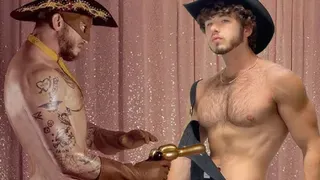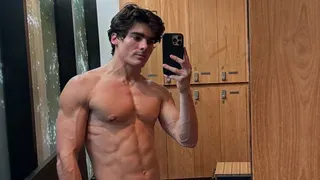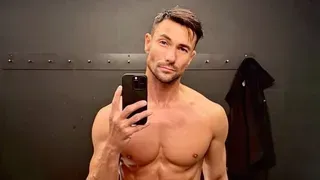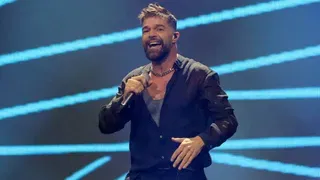January 23, 2009
"Milk" screenwriter straddles two clashing worlds
David Foucher READ TIME: 3 MIN.
The Oscar-nominated screenwriter of "Milk," about one of America's first openly gay elected officials, says he first heard of Harvey Milk as a closeted gay teenager who grew up a devout Mormon in Texas.
By then, about 10 years had passed since Milk, the charismatic San Francisco gay activist and politician, had been shot and killed, but Dustin Lance Black said Milk's story struck him as a personal inspiration.
"It gave me a lot of hope and allowed me to start growing again," said Black after "Milk" -- his first produced feature film script -- was nominated on Thursday for an Academy Award as best original screenplay.
The movie collected eight Oscar nominations in all, including one for best picture.
Gus Van Sant was nominated as best director, Sean Penn as best actor for his portrait of Milk, and Josh Brolin as best supporting actor for playing Milk's assassin, Dan White. The Oscars are to be handed out on February 22.
Black learned of Milk, and his campaign to empower San Francisco's gay community, from a local theater director after moving with his family to the Bay area from Texas at age 13. At that point, Black said, he was still repressed about his sexuality.
"I really feel like (Milk) kind of saved me in a way," said Black, 34, now a writer and co-producer on the HBO television series "Big Love," about a polygamist living under the radar with three wives in suburban Salt Lake City.
Years later, in 2004, Black met gay activist Cleve Jones, a close pal of Milk who introduced him to their old circle of friends from San Francisco's Castro district, launching Black on his quest to tell Milk's story on screen.
POLITICAL PARALLELS
The film has played as an arthouse favorite since opening in late November, weeks after a bitter campaign in California over a ballot measure to ban gay marriage in the state.
Proposition 8 passed on November 4 but came under immediate court challenge and sparked street demonstrations in the gay community. Much of the anger was directed at members of the Mormon Church, who helped finance the measure.
"I grew up a devout Mormon in Texas," Black said. "So it's sort of funny that I straddle these two worlds, these two cultures that are at war with each other. I'm an out gay guy who grew up really believing in the Mormon Church."
By coincidence, much of Black's screenplay focuses on Milk's successful battle in 1978, as a member of San Francisco's Board of Supervisors, to defeat a measure that would have banned gay teachers in California's public schools.
As it happened, "Milk" was written and shot before the emergence of Proposition 8. But the fight surrounding it has given added resonance to the film.
Black said the story of Milk, an outsider and underdog who made his mark with a populist appeal and gift for building unlikely coalitions, contains parallels to the rise of another unlikely political figure.
"I would be listening to these speeches by Barack Obama and looking at transcripts of the speeches by Harvey Milk and it was eerie and very, very exciting for me to hear that again," he said.
The film's producers, Dan Jinks and Bruce Cohen agreed.
"There is something so universal in a story of an outsider who makes a difference in the world," Jinks said. "And that's what happened this past week when Barack Obama ... became president of the United States."
David Foucher is the CEO of the EDGE Media Network and Pride Labs LLC, is a member of the National Lesbian & Gay Journalist Association, and is accredited with the Online Society of Film Critics. David lives with his daughter in Dedham MA.







